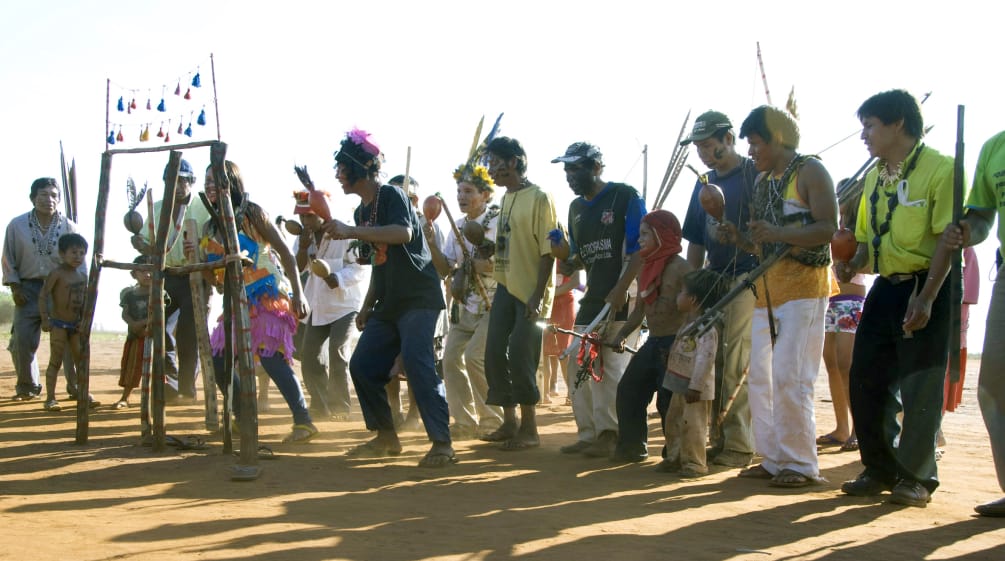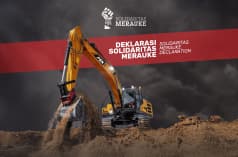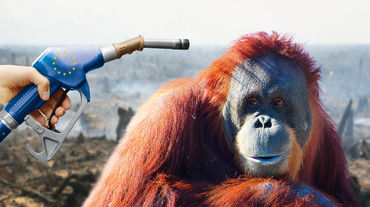Brazil: Guaraní land rights established
 Guaraní performing a traditional dance, Brazil. © Fiona Watson/Survival (© Survival)
Guaraní performing a traditional dance, Brazil. © Fiona Watson/Survival (© Survival)
Feb 13, 2013
On January 10, 2013, the national authority for the protection of indigenous peoples in Brazil (FUNAI) confirmed the rights of two Guaraní-Kaiowá communities to 41,571 hectares of land. FUNAI thus responded to protests by the Guaraní, who for decades have been pitted against major landholders who have been colonizing the indigenous territory.
In December 2012, the Guaraní community Pyelito Kue published a dramatic letter in which 170 members threatened to commit mass suicide if the untenable situation did not change. In the struggle for recognition of their land rights, the Guarani-Kaiowá have international backing. Rainforest Rescue published several online protest campaigns and organized demonstrations in Berlin in solidarity with the Guaraní. In June 2012, international pressure prompted Shell to terminate its business relationships to sugarcane farmers operating plantations on Guaraní land.
Vast areas of Guaraní-Kaiowá ancestral land in the Brazilian state of Mato Grosso do Sul are being used illegally for soybean and sugarcane plantations. Major landholders have tried to break the Guaraní’s struggle for their land rights with brute force. In 2012 alone, 55 Guaraní-Kaiowá were killed. In particular, the murder of the Guaraní chief Nísio Gomes prompted international outrage. Violence against indigenous peoples also has structural roots in Brazilian society: “45,000 Guaraní are subject to extreme social exclusion,” notes the renowned Brazilian environmentalist and politician Marina Silva. The improvement of indigenous rights has played only a minor role under the government of Dilma Rousseff. In the first two years of her term, only ten new indigenous territories were established.
The land rights now recognized by FUNAI are based on an anthropological study by the authority that was able to scientifically establish the legal rights of the Guaraní-Kaiowá people. The land rights are not yet legally valid, however. The next step will be their confirmation by the Ministry of Justice.
Ladio Veron, the son of assassinated Guaraní chief Marcos Veron, told Brazilian TV: “The land being returned to us is devastated and barren. We are going to have to work hard to reforest it. To succeed in the long run, we are going to need support.”











